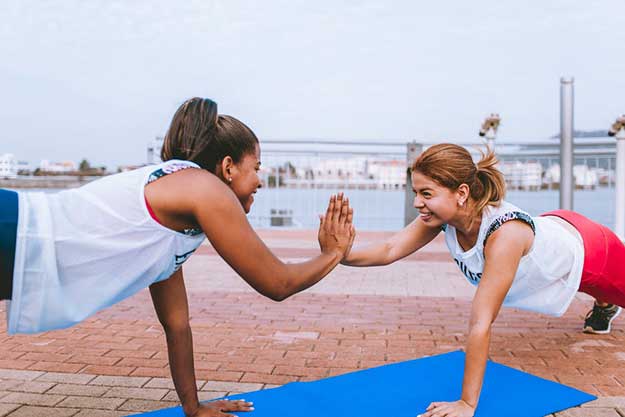With the holiday season in full swing, many may find their commitment to wise dietary decisions and physical activity waning. Thankfully, the new year brings with it a renewed sense of dedication that can spur even the most cookie-comatose people back into action. To aid in this wellness endeavor is Pacific Medical Centers' Sports Medicine Physician Chris Maeda, who offers advice on adopting new fitness routines below.
Many New Year's resolutions are centered on health, fitness and nutrition. What are some examples of good physical exercises people may consider as they pursue a more active lifestyle?
As studies have shown, exercise is good for physical and mental health. Exercise is an effective treatment for hypertension, high cholesterol, diabetes, depression and more. When thinking of New Year's resolutions, it's important to think of activities that get you moving (i.e. walking, dancing, cycling, etc.)
 For exercise newbies, what are some things to consider when creating and establishing a new fitness regimen?
For exercise newbies, what are some things to consider when creating and establishing a new fitness regimen?
At Pacific Medical Centers, we encourage our patients to start low and go slow by easing into any exercise program. It's not recommended to start trying to run if you have never run before. You can begin with fast walks and slowly progress to intermixing short running spurts during the walks, and then progress to running. A good start can be as simple as parking far away, so you have to walk more.
In your experience, what are some obstacles or hurdles people face that can lead to derailment of their fitness goals? What tips can you offer to keep people motivated?
a) The biggest mistake people make is to start too aggressively in their exercise program. For example, trying to run three miles, five days a week, when they have never run before. Generally, this will lead to overuse injuries/strains, which then forces the person to have to stop working out, which makes it tough to go back.
b) Try to start an exercise program with a friend. It helps to have company and hold each other accountable.
c) Try and find something you truly enjoy doing. Those who try things that they don't enjoy will often have a harder time sticking to it in the long term.
How can people with busy schedules still manage to dedicate themselves to a consistent workout routine?
First, make a written schedule of your workout times and the frequency that you plan to execute this. Like any other meeting or reminder, put your workout times on your calendar and make it a priority.
It is important to have a work/life balance, and this is a great way to designate some time for yourself. If you look at how much time we spend on our phones, or even commuting, it should be an achievable goal to spend at least 30 minutes a day on exercise.
Would you like to share anything else about this topic to readers?
To prevent future injuries, people should also be active to keep their muscles balanced. For example, football is physical exercise. However, the Seahawks don't just play football. They are regularly in the gym doing strength training/conditioning to get stronger, but more importantly to keep their muscles balanced.
Muscle imbalances are the number one cause of overuse injuries like tendonitis and bursitis. If someone just runs all the time and does nothing else, they will get a muscle imbalance and that is why they can get shin splints, knee pain, IT band issues, etc.
One of the best ways to keep muscles balanced is to strength train. If you work on your biceps, you also work on your triceps. If you push things like in a bench press, you should pull like in rows.
The strength training helps keep things balanced and can also make you stronger. There is no impact on strength training, so it can be easier on the joints (as long as the form is good) and can help keep bones strong (especially for women). Even people who "don't play a sport" will benefit.
Everyone has to push, pull, squat or carry things, whether it is cleaning the house or gardening, etc. Therefore, everyone needs to spend time to train and be active in their own way.




Read Comments